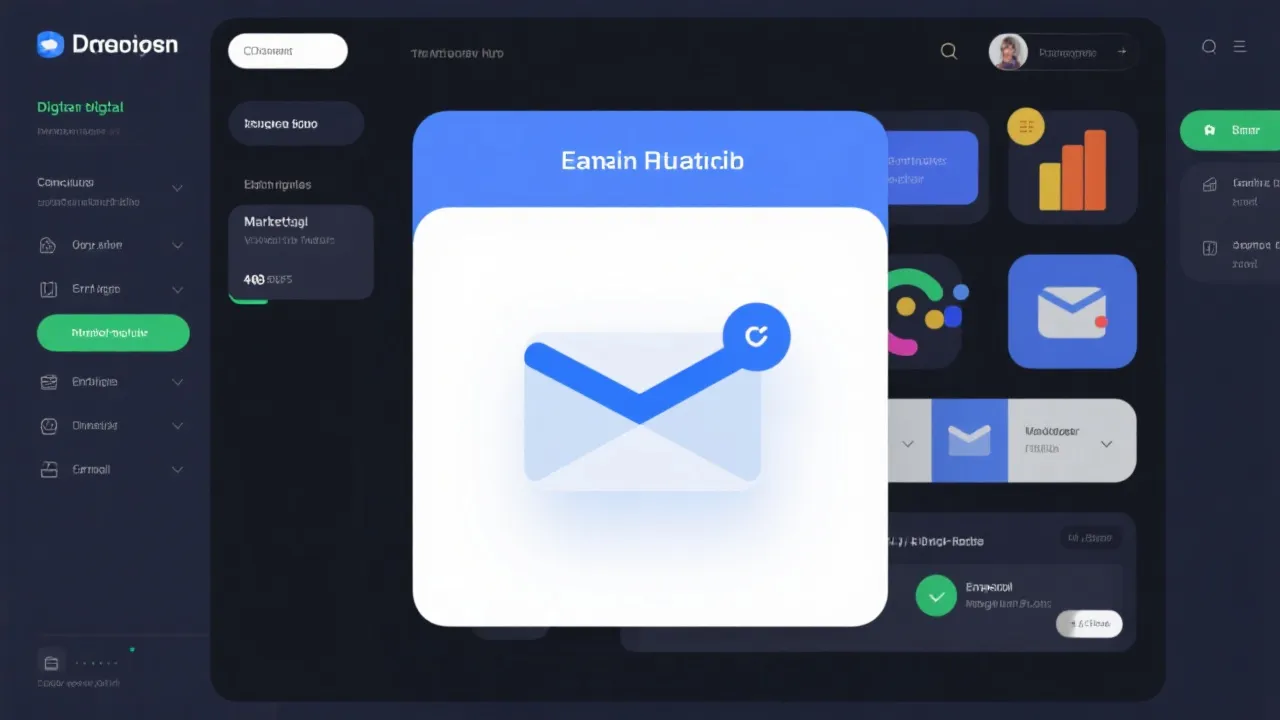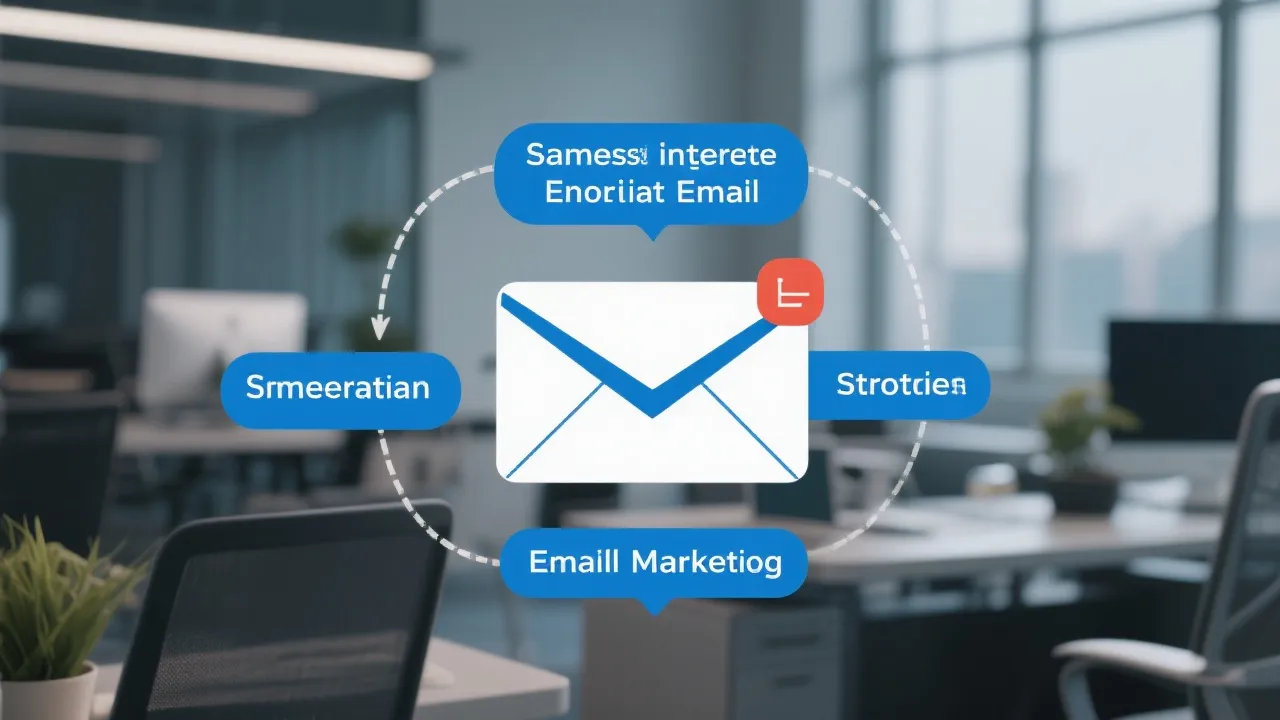Mastering Shopify Marketing Automation
Learn how Shopify Marketing Automation revolutionizes e-commerce, streamlining processes and enhancing customer engagement. As e-commerce booms, staying ahead with efficient automation is crucial. Discover insights on maximizing Shopify's tools for improved targeting, personalized communication, and seamless operation, essential for any thriving online business.

Introduction to Shopify Marketing Automation
In the realm of e-commerce, efficiency and effective customer engagement are pivotal for success. Shopify Marketing Automation represents a vital tool in this landscape, providing businesses with the ability to streamline marketing processes and foster deeper connections with their customer base. Automation helps online retailers manage their marketing tasks efficiently, offering enhanced agility and precision in targeting potential customers.
This global trend towards automation reflects broader technological advances and the increasing expectation of personalized, quick customer interactions. For many e-commerce businesses, manual marketing processes can lead to inefficiencies, missed opportunities, and ultimately lost sales. By adopting Shopify Marketing Automation, companies can leverage technology to automate repetitive tasks, manage campaigns easily, and maintain consistent engagement with their audience. As the e-commerce industry continues to evolve, the importance of sophisticated automation tools like Shopify is amplified.
The Role of Shopify Marketing Automation in E-commerce
Shopify Marketing Automation serves as a robust platform that integrates seamlessly with existing operations to optimize marketing efforts. By automating routine tasks, businesses can allocate resources to more strategic endeavors, such as developing creative campaigns and enhancing customer experiences. The system facilitates improved targeting, allowing marketers to tailor their strategies based on customer behavior and preferences, ultimately leading to increased conversion rates and customer loyalty.
Moreover, in the e-commerce landscape, consumers are inundated with choices, making it crucial for brands to stand out. Shopify Marketing Automation provides tools that help marketers craft messages that not only capture attention but also resonate deeply with the intended audience. The ability to use consumer data to segment audiences means that marketing messages can be finely tuned to ensure relevance and impact. This contributes significantly to a brand’s ability to remain competitive in today’s crowded market.
Enhancing Customer Engagement
At the heart of Shopify Marketing Automation is its ability to personalize the customer journey. Through the intelligent use of data, businesses can deliver targeted messages and promotions, ensuring that customers receive offerings that resonate with their interests and needs. This personalization not only enhances customer satisfaction but also builds brand loyalty, as customers are more likely to return to businesses that understand and cater to their preferences.
Enhancing customer engagement is not merely about reaching out to customers but also about understanding them at a deeper level. For instance, utilizing customer behavior analytics allows businesses to identify trends and adjust their marketing strategies accordingly. Whether it’s sending personalized product recommendations based on previous purchases or leveraging abandoned cart reminders at strategic times, the key is to communicate with customers in a way that feels relevant to them, which can ultimately lead to higher retention rates.
Engaging with customers across multiple channels (email, social media, SMS) further amplifies these efforts. Shopify enables integration with many of these platforms so that marketers can connect with their audience in the channels they prefer. It opens up new opportunities for engagement through targeted campaigns that can react quickly to consumer behaviors and market changes.
Features of Shopify Marketing Automation
Shopify's Marketing Automation platform comes equipped with a variety of features designed to optimize marketing operations. These include:
- Email Campaigns: Automate email marketing efforts with personalized content that targets specific customer segments based on their purchasing behavior, preferences, and demographics. This enables businesses to send the right message at the right time, improving open and click-through rates.
- SMS Marketing: Reach customers directly via SMS notifications, driving higher engagement rates. SMS messages can be particularly effective for time-sensitive promotions and immediate follow-ups, creating an approach that feels personal and direct.
- Abandoned Cart Recovery: Automatically remind customers to complete purchases, reducing cart abandonment rates. These reminders can be customized with incentives like discounts or free shipping, increasing the likelihood of conversion.
- Analytics and Reporting: Gain insights into campaign performance and customer behavior to refine strategies. Shopify provides comprehensive analytics tools, allowing businesses to track metrics such as open rates, purchase conversions, and ROI efficiently.
In addition to these core features, Shopify Marketing Automation also supports customer journey mapping. This allows businesses to visualize the entire lifecycle of customer interactions, from the very first visit to repeated purchases, making it easier to pinpoint opportunities for improvement.
Leveraging Data for Improved Targeting
The utilization of data is a cornerstone of effective Shopify Marketing Automation. By analyzing customer interactions and purchasing patterns, businesses can create precise customer profiles. These profiles enable marketers to tailor messaging and promotions that cater specifically to individual needs, delivering a more personalized shopping experience that can significantly boost conversion rates.
Data is more than just numbers; it tells a story about customer behavior and preferences. By employing data analytics, businesses can segment their audience into various groups based on specific attributes like age, purchasing history, and engagement level. With this insight, marketers can fine-tune their campaigns, ensuring they deliver relevant content to each segment. For instance, a business can send exclusive offers to its most loyal customers while nurturing newer customers with introductory discounts.
Furthermore, predictive analytics can take data-driven targeting to the next level. By anticipating what customers may need in the future based on past behavior, businesses can proactively reach out with tailored marketing initiatives. This foresight can drastically increase engagement rates and lead to improved customer satisfaction and loyalty.
Implementing Shopify Marketing Automation: A Step-by-Step Guide
- Define Your Automation Goals: Identify what you aim to achieve with automation, such as increased sales, higher engagement, or improved customer retention. Clear goal-setting is crucial to measure success effectively.
- Select the Right Tools: Explore Shopify's range of automation tools and features that best align with your goals. It’s essential to choose tools that integrate well with your existing e-commerce setup to ensure a seamless experience.
- Integrate with Your Existing System: Ensure a smooth integration of Shopify's automation tools with your current setup to maximize efficiency. This step often requires technical assistance, depending on your current platform and how you want to transition to automated processes.
- Test and Optimize: Continuous testing and refinement of automated workflows are crucial for achieving desired outcomes. This could involve A/B testing email subject lines or comparing different SMS formats to see which yields higher engagement.
- Monitor and Analyze Results: After implementation, regularly monitor your campaigns' performance to gather insights. Use these insights to iterate on your strategies, refining your approaches based on what the data reveals.
Comparison of Popular Shopify Marketing Automation Tools
| Tool | Features | Advantages |
|---|---|---|
| Klaviyo | Email and SMS Marketing, Audience Segmentation | Advanced segmentation capabilities and tailored analytics allow businesses to create highly targeted marketing campaigns. |
| Omnisend | Email Marketing, SMS, and Automation | All-in-one solution for e-commerce businesses, providing a seamless experience with integrations across various platforms. |
| Mailchimp | Email Campaigns, Audience Insights, CRM Tools | Wide range of integration options and a user-friendly interface that caters to companies of all sizes, especially small to medium enterprises. |
| ActiveCampaign | Email Marketing, Customer Relationship Management, Automation | Robust automation features that enable complex workflows and tailored communication strategies. |
| Shopify Email | Email Templates, Segmentation, Campaign Builder | User-friendly for those who are new to email marketing, providing a straightforward approach to launching email campaigns through Shopify. |
Challenges and Considerations
While Shopify Marketing Automation offers numerous benefits, businesses must be vigilant in navigating potential challenges. Ensuring data privacy and maintaining personalized communication without becoming intrusive are crucial considerations. It is essential that businesses comply with regulations such as GDPR (General Data Protection Regulation) to maintain customer trust and avoid legal repercussions.
Additionally, staying updated with technological advancements and continuously adapting strategies are essential for leveraging the full potential of automation tools. Technology is rapidly evolving, and what works today might not work tomorrow. Regular training for staff on the latest features and best practices can help mitigate this issue and ensure that your marketing strategies remain effective and relevant.
Another challenge businesses face is the initial learning curve associated with automation tools. Although many solutions are designed to be user-friendly, it can be overwhelming to set up the necessary systems effectively. Therefore, investing time and resources upfront into education and training can pay dividends in the long run.
Conclusion
Shopify Marketing Automation is transforming how e-commerce businesses interact with customers and manage marketing tasks. By streamlining processes and leveraging data-driven insights, companies can significantly enhance efficiency, improve engagement, and ultimately drive sales conversions. As e-commerce continues to grow and evolve, embracing automation tools like those offered by Shopify is essential for businesses looking to remain competitive in an increasingly digital landscape.
FAQs
- What is Shopify Marketing Automation?
Shopify Marketing Automation refers to the use of automated tools and platforms to enhance marketing efforts, targeting customer engagement, and streamlining processes in e-commerce environments. - How can it benefit my business?
It increases efficiency, personalizes customer experiences, optimizes marketing strategies, and improves conversion rates through data-driven insights. - How do I get started with Shopify Marketing Automation?
Begin by defining your goals, selecting the right tools, integrating those tools with your system, and continuously testing and optimizing your automated workflows. - Is Shopify Marketing Automation suitable for small businesses?
Absolutely. Shopify Marketing Automation tools are designed to cater to businesses of all sizes. They provide features that can be scaled to meet the unique needs of small businesses while helping them grow. - What are the costs associated with Shopify Marketing Automation?
The costs can vary widely depending on the tools and services you choose. Many options offer tiered pricing models based on feature sets and usage levels, so businesses can select a plan that fits their budget.










